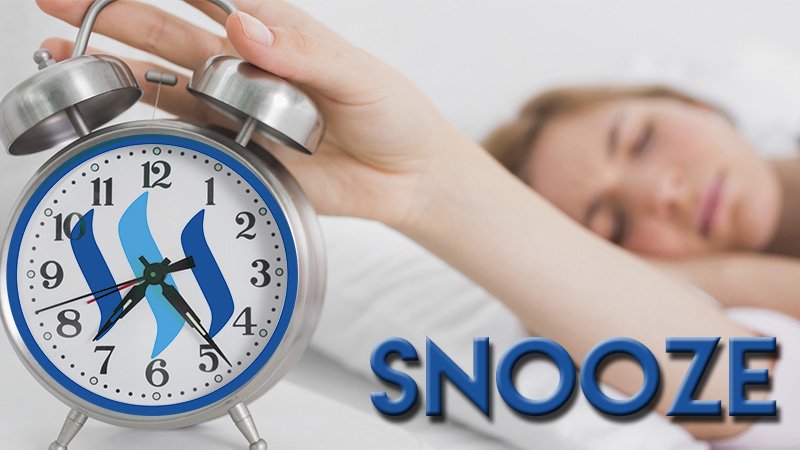
The Snooze Button.
Everybody can relate to this scenario: When your alarm goes off in the morning and you wake up still feeling extremely tired, 9 minutes of additional sleep are so tempting!
So you hit the snooze button, and doze off again... only to wake up tired again 9 minutes after.
Many people rely on the snooze button and even set their alarm earlier to make sure they can still snooze and relax for a little longer before actually having to get up.
But what does pressing the snooze button actually do to your body - and your state of sleepiness?
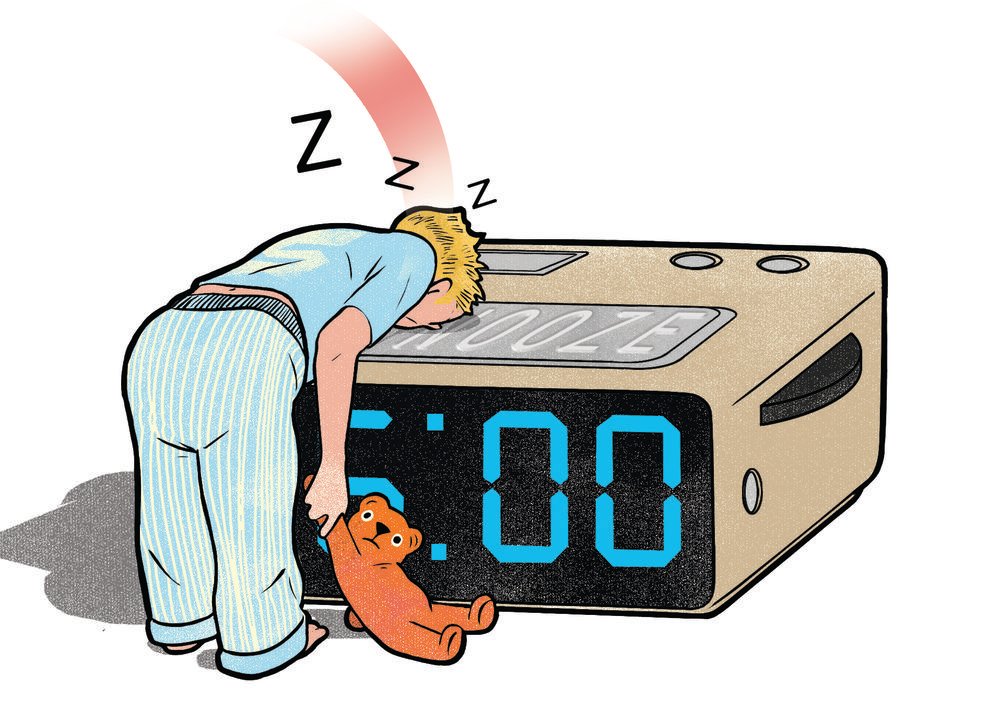
Sleep Stages and natural rhythm
When we sleep, our body enters different stages of light and deep sleep.
If we don't set an alarm, our body slowly prepares itself about 1 hour before waking up: the body temperature begins to rise, and hormones like dopamine and cortisol are being released to make you feel more awake and ready to start the day.
But if your alarm clock disturbs you, your body isn't ready yet - your sleep cycle is being interrupted, and you wake up feeling groggy, disoriented and like you're still half asleep.
This state is called sleep inertia, and its strength depends on the deepness of your interrupted sleep.
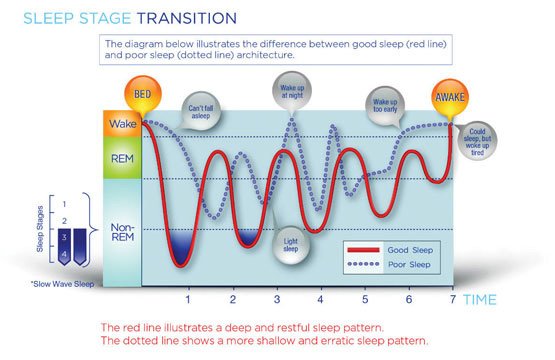
Snooze Button and fragmented sleep
If you woke up from your alarm but then hit the snooze button, you back to sleep only for a few minutes.
Your body starts a new sleep cycle, which then gets interrupted again -it's a vicious cycle!
The longer your snooze intervals are, the more you risk drifting back into deep sleep, which will have you wake up with worse sleep inertia.
Instead of hitting the snooze button 3 times, you should just set your alarm 30 minutes later and therefore get 30 extra minutes of proper rest.
3x 10 minutes of fragmented sleep are much lesss restorative than a regular 30 minutes of sleep, and they are actually even worse than going without those 30 minutes of sleep at all.
Finally getting up after hitting the snooze button multiple times result in trouble to concentrate, grogginess and other factors that can linger around for several hours after getting up.
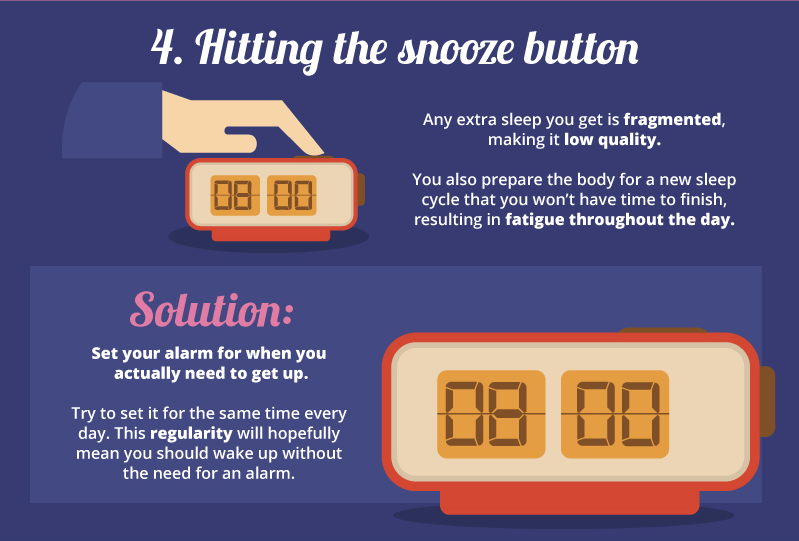
What's a better way to get up?
Obviously, start by avoiding the snooze button alltogether and instead set your alarm clock at the time when you really need to get up - the time of the last snooze.
If you put your alarm clock far away from the bed, you'll have to actually get up and turn it off, which will prevent you from dozing off again.
And once you've gotten out of bed, resist the temptation to crawl back in! If you seriously need to be awake right away, head straight to the bathroom and refresh your face with some (cold) water.
A good tip to memorize is also to signal your body it's time to wake up: by exposing it to light.
The best way to do this would be to open the curtains and let the natural sunlight hit your face, but that's not always possible when you wake up early during winter. So immediately switching on the lights helps as well.
Apart from that, you should generally try to establish a schedule, which will help you naturally wake up around the same time everyday, and will reduce overall tiredness.
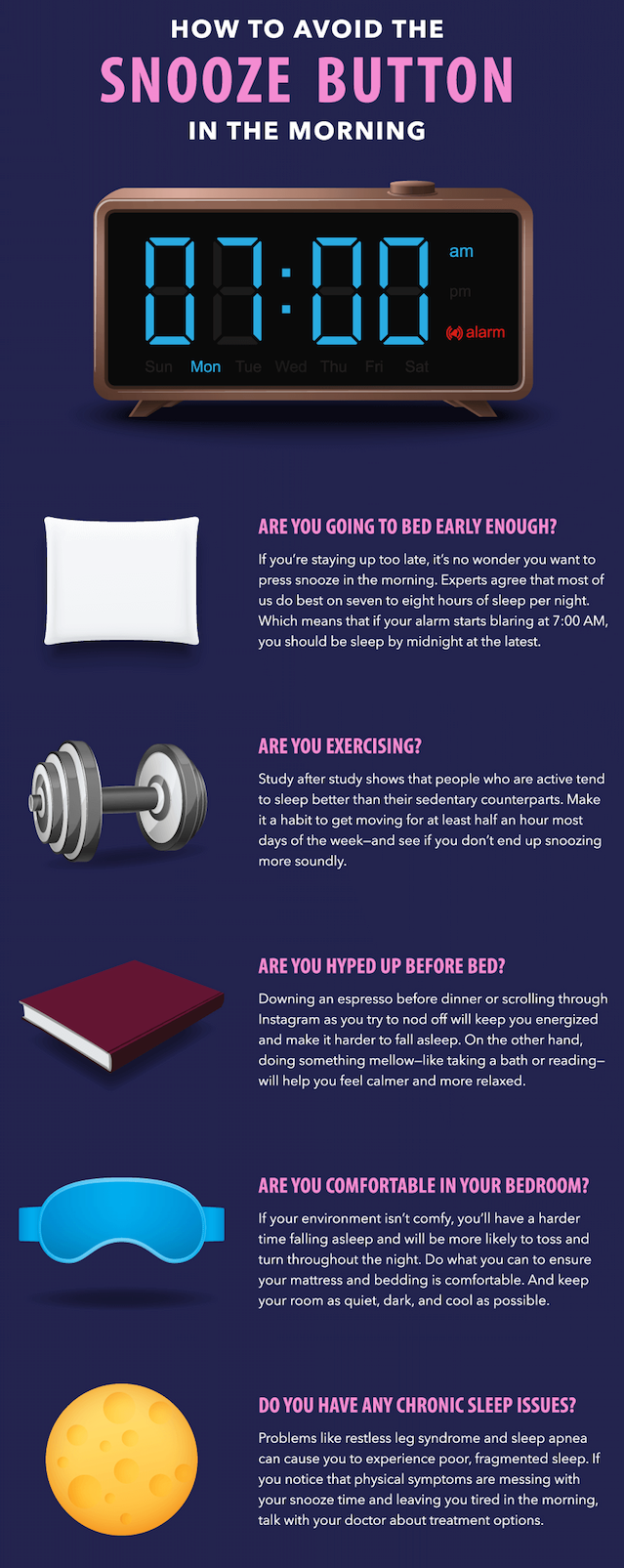
Images: 1, 2, 3, 4, 5, Sources: 1, 2, 3, 4
- Instagram -

Sirwinchester
